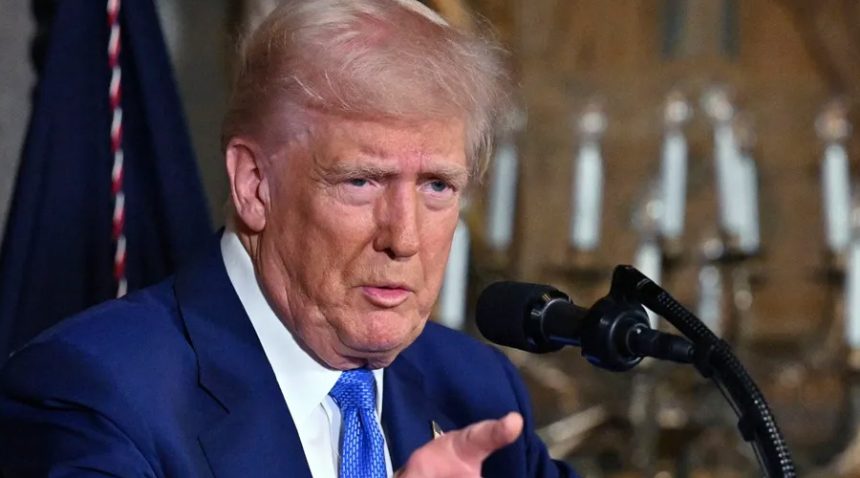With 25% tariffs looming, Indian drugmakers like Zydus and Dr. Reddy’s brace for impact
The announcement of new tariffs by President Donald Trump, set to take effect on April 2, 2025, has raised significant concerns across various sectors globally. Among these, India’s healthcare industry stands particularly vulnerable due to its substantial reliance on pharmaceutical exports to the United States. The imposition of these tariffs threatens to disrupt supply chains, inflate drug prices, and challenge the operational dynamics of Indian pharmaceutical companies.
India’s Pharmaceutical Exports to the U.S.: An Overview
India has long been a pivotal player in the global pharmaceutical landscape, often referred to as the “pharmacy of the world.” The country supplies nearly 47% of generic medicines consumed in the U.S., contributing significantly to affordable healthcare options for American patients. In fiscal year 2024, India’s pharmaceutical exports to the U.S. were valued at approximately $8.7 billion, underscoring the deep interconnection between the two nations in the healthcare sector.
Potential Impact of Tariffs on Drug Prices and Accessibility
The proposed tariffs, potentially as high as 25%, are expected to have a cascading effect on drug prices in the U.S. Analyses suggest that such tariffs could increase the cost of certain cancer treatments by up to $10,000 for a 24-week course. Generic drugs, which have been instrumental in reducing healthcare costs, might see price hikes from an average of 82 cents to 94 cents per pill. These increases could strain health insurance systems and place additional financial burdens on consumers, particularly those reliant on affordable medication for chronic conditions.
Challenges for Indian Pharmaceutical Companies
Indian pharmaceutical firms, heavily dependent on the U.S. market for revenue, face significant challenges under the new tariff regime. Companies like Zydus and Dr. Reddy’s Laboratories, which have substantial exposure to the U.S. market, are at heightened risk. The increased costs associated with tariffs may compel these companies to reevaluate their pricing strategies, potentially affecting their competitive edge in the U.S. market. Moreover, the prospect of establishing manufacturing facilities in the U.S. to circumvent tariffs is daunting, given the estimated $2 billion investment and a timeline of up to a decade for such ventures.
Regulatory Scrutiny and Quality Concerns
Beyond financial implications, the tariffs may intensify scrutiny over the quality standards of Indian pharmaceuticals. Historically, there have been concerns regarding compliance with stringent U.S. Food and Drug Administration (FDA) regulations. The current trade tensions could exacerbate these issues, leading to more rigorous inspections and potential delays in drug approvals, further impacting the market presence of Indian pharmaceutical companies in the U.S.
Strategic Responses and Industry Adaptations
In anticipation of the tariffs, some Indian drugmakers have expedited shipments to the U.S. to stockpile inventory before the new duties take effect. This strategy aims to mitigate short-term disruptions but is not a sustainable long-term solution. The Pharmaceutical Research and Manufacturers of America (PhRMA) has been lobbying for a phased implementation of the tariffs, arguing that an abrupt imposition could lead to drug shortages and adversely affect patient access to essential medications.
Broader Implications for the Global Healthcare Ecosystem
The imposition of tariffs on Indian pharmaceutical imports is likely to have ripple effects across the global healthcare ecosystem. Increased drug prices in the U.S. could lead to higher healthcare costs, influencing insurance premiums and out-of-pocket expenses for patients. Additionally, the tariffs may prompt a reevaluation of global supply chains, with companies exploring diversification to mitigate geopolitical risks.
President Trump’s tariff threats pose a multifaceted challenge to India’s healthcare industry, particularly its pharmaceutical sector. The anticipated increase in drug prices, coupled with potential supply chain disruptions and heightened regulatory scrutiny, underscores the need for strategic planning and adaptive measures by Indian pharmaceutical companies. As the situation evolves, stakeholders must navigate these complexities to sustain the vital flow of affordable medications between India and the United States, ensuring that patient care remains uncompromised.






